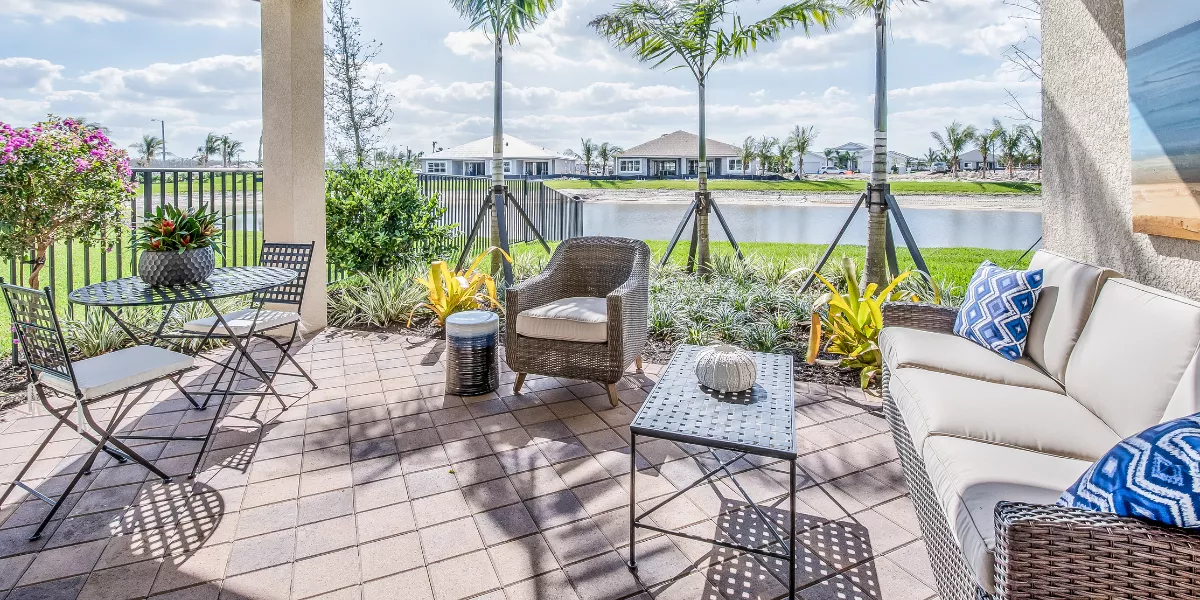
Enhance your outdoor decor by choosing plants that match sunlight levels and using creative planters like vintage crates and hanging baskets. Incorporate vertical gardens to save space and create natural privacy screens. When arranging plants, consider color and texture, leaving room for growth. Remember to maintain your greenery by watering, pruning, and fertilizing regularly. Get inspired to transform your outdoor space with these simple steps!
Choosing the Right Plants
When selecting plants for your outdoor decor, consider the amount of sunlight they'll receive. Different plants have varying sunlight requirements, so it's crucial to match the plants with the specific sunlight conditions in your outdoor space.
For areas that receive plenty of sunlight, opt for sun-loving plants like marigolds, petunias, or succulents. These plants thrive in direct sunlight and will add vibrant pops of color to your outdoor decor.
On the other hand, if your outdoor space is shaded for most of the day, choose plants that are well-suited for low light conditions. Ferns, hostas, and impatiens are excellent choices for shaded areas and will bring life to these spots in your outdoor decor.
By understanding the sunlight needs of your plants, you can ensure they'll flourish and enhance the overall aesthetic of your outdoor space.
Remember to periodically assess the sunlight levels in your outdoor area throughout the day to guarantee your plants are receiving the appropriate amount of light to thrive.
Creative Planters and Containers
To enhance the visual appeal of your outdoor space, explore creative planters and containers that can elevate the overall look of your plant arrangements. Think beyond traditional pots and consider using unique items like vintage crates, colorful buckets, repurposed tires, or even old teapots to add an interesting twist to your garden.
Hanging planters such as macramé holders or cascading baskets can bring a touch of whimsy and save space. Additionally, vertical garden walls made from pallets or shoe organizers offer a modern and space-efficient way to display your plants.
When choosing planters, ensure they've proper drainage to prevent waterlogging and root rot. Mixing different sizes, shapes, and textures of planters can create a dynamic and visually appealing arrangement. Don't be afraid to experiment with unconventional options like terrariums, mason jars, or even painted cinder blocks to add personality to your outdoor decor.
Incorporating Vertical Gardens
Explore the innovative concept of incorporating vertical gardens to maximize the use of space and add a modern touch to your outdoor decor. Vertical gardens are an excellent way to bring greenery into small spaces or areas with limited ground space. By utilizing walls, fences, or specially designed vertical structures, you can create a lush garden that not only enhances the aesthetic appeal of your outdoor area but also provides numerous benefits such as improved air quality and insulation.
When incorporating vertical gardens, consider using a variety of plant species to add visual interest and texture. Mixing different types of plants like trailing vines, colorful flowers, and leafy greens can create a dynamic and vibrant display. Additionally, make sure to choose plants that are suitable for vertical growth and can thrive in the specific lighting and climate conditions of your outdoor space.
Vertical gardens can also serve as natural privacy screens or partitions, helping to define different areas within your outdoor decor. Whether you opt for a DIY vertical garden project or invest in ready-made vertical planters, this modern gardening trend is sure to elevate your outdoor space with style and functionality.
Plant Placement and Arrangement
Enhance the visual appeal of your outdoor space by strategically placing and arranging plants to create a harmonious and balanced garden design. Consider the size and shape of each plant when deciding where to place them. Taller plants can be positioned at the back of a flower bed or along a fence to provide a backdrop for smaller plants in the front. Grouping plants with similar water and sunlight needs together can make maintenance easier and ensure they thrive.
When arranging plants, pay attention to color, texture, and form. Mixing different plant colors can create contrast and interest, while choosing plants with varying leaf shapes and sizes adds texture to your garden. Combining plants with different forms, such as spiky, round, or cascading, can add visual appeal and dimension to your outdoor space.
Don't forget to leave enough space between plants to allow for growth and airflow. Overcrowding can lead to competition for resources and potential disease problems. By carefully planning the placement and arrangement of your plants, you can create a beautiful outdoor oasis that will be a joy to relax in.
Maintenance Tips and Tricks
For efficient plant care, prioritize regular watering and timely pruning to maintain the health and appearance of your outdoor greenery. Watering is crucial for plant health, so check the soil moisture regularly, especially during hot weather, and adjust your watering schedule as needed. It's better to water deeply but less frequently to encourage deep root growth. Consider using a drip irrigation system to ensure consistent moisture levels.
In addition to watering, proper pruning is essential for plant maintenance. Regularly inspect your plants for any dead, damaged, or overgrown branches and trim them to promote new growth and maintain a tidy appearance. Make clean cuts using sharp tools to prevent damage and reduce the risk of disease. Remember to research the specific pruning needs of each plant species in your outdoor decor to ensure you're pruning correctly.
Lastly, don't forget to fertilize your plants according to their individual needs. Choose a suitable fertilizer and apply it as directed to provide essential nutrients for healthy growth. By staying on top of watering, pruning, and fertilizing, you can keep your outdoor greenery thriving and looking its best.




